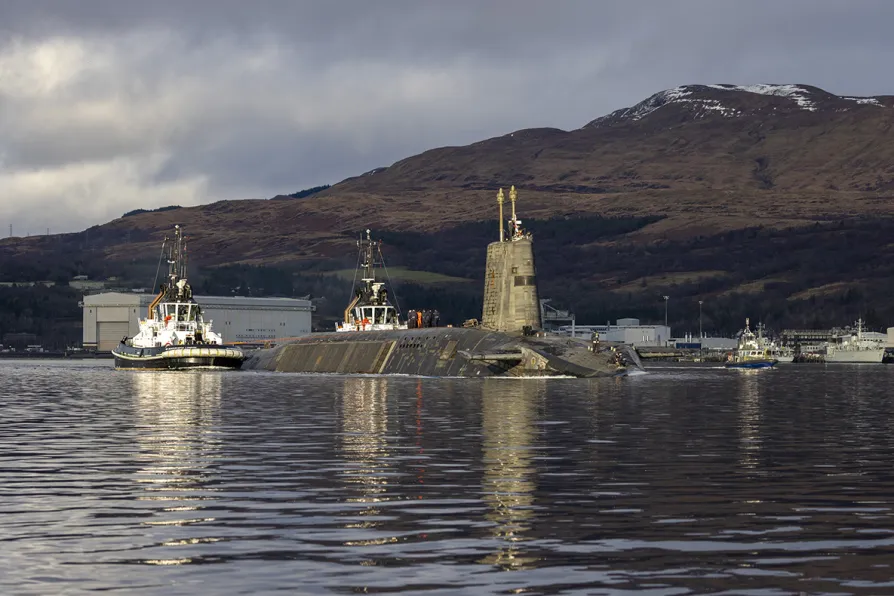Swinney bomb stance ‘confused and confusing,’ say campaigners

 An undated photo provided by the Ministry of Defence of vanguard class nuclear submarine HMS Vengeance in Gare Loch, after departing HM Naval Base Clyde in Faslane, Scotland
An undated photo provided by the Ministry of Defence of vanguard class nuclear submarine HMS Vengeance in Gare Loch, after departing HM Naval Base Clyde in Faslane, Scotland
SCOTTISH First Minister John Swinney’s backing for Nato and higher defence spending even as he renews his party’s opposition to nuclear bombs has been slammed as “confused and confusing” by peace campaigners.
Mr Swinney, who campaigned for Scottish independence under the “Bairns not Bombs” banner, was fulsome in his support for Prime Minister Keir Starmer’s plans to “reshape the economy” by boosting arms spending to 2.5 per cent of GDP, but took issue with its funding model.
He branded Labour plans to cut international aid spending the “wrong choice,” but said: “I do think it’s necessary to take seriously the threat of security, which therefore leads to the conclusion that we need to spend more on defence.”
Similar stories

As Macron and Merz propose French nuclear-armed jets be stationed in Poland and Germany, the dangerous implications for peace and the possibility of nuclear confrontation grow, warns SOPHIE BOLT













